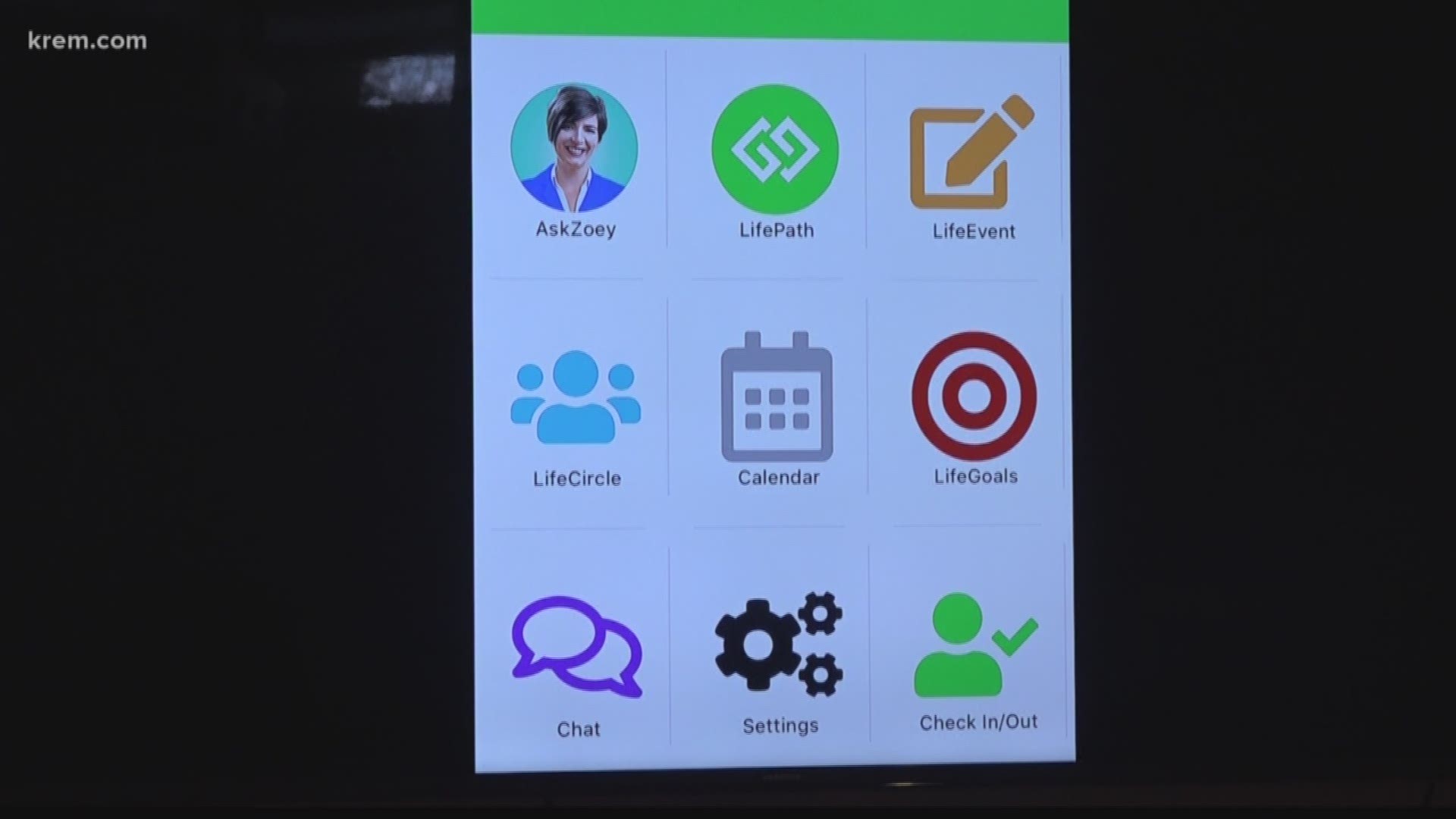SPOKANE, Wash. — A Spokane company is hoping to tackle homelessness with a new phone application. The company’s president says it could help the city in a big way.
The Life Connect app was designed by Ed and Gail Stevenson, the president and CEO of a local company called Life Recovery Solutions.
It is not an app that gives those struggling a virtual "high five" for meeting goals. Instead, it connects the homeless, mentally ill or those struggling with addiction with resources and treatment providers.
One feature of the app is a virtual assistant known as Zoey. She is a confidant for clients using the app.
Zoey is constantly checking in with clients of the app to see how they are doing, how they are feeling, and to connect them with resources or even directly with their treatment providers.
Life Connect launched in January and the creators said connecting clients with a positive network of friends, family or resources is going to be a game changer for Spokane's homeless problem.
"Mayor Condon told us that they are spending $8.5 million. That's what they spent last year to house [the] homeless," Ed Stevenson said. "All of these services are out there, they just don't know how to find them. With our software, we can connect them to all of those services to move them up. Hope, meaning and purpose and get them off of the streets.”
Through recent research and observation, the Stevensons said most of the homeless population they have interacted with have smart phones, so access to the app is not a problem.
Stevenson said many who are suffering from homelessness, drug addiction or mental illness tend to isolate themselves, but through the app they are always connected.
"We are not dreamers to believe we are going to help 100 percent of the people," Gail Stevenson said. “But even if we could help half of those people, what a difference it would make in their lives and the lives of their families.”
The first version of the app was built three-and-a-half years ago and tested on a recovery group of twelve people. According to Ed Stevenson, only one person in that group relapsed.
The app is given to the treatment providers who then share it with their clients.

